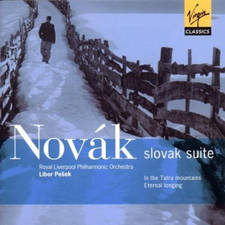The Full Works Concert - Tuesday 17 September 2013
Favourites from Handel, Mendelssohn and Tchaikovsky are on the menu for tonight's Concert.
Translated literally as ‘The Bat’, Die Fledermaus by Johann Strauss II is a complete farce, focusing on mistaken identity, flirtation and a practical joke that has unforeseen consequences. It was an immediate, sure-fire hit, ensuring that Strauss was inspired to go on and write operetta after operetta for the next 25 years. We hear the Overture tonight played by the Academy of St.Martin in the Fields conducted by Neville Mariner.
Tchaikovsky's Variations on a Rococo Theme was the closest he ever came to writing a concerto for cello and orchestra. It was inspired by Mozart but does not employ a genuine Rococo Theme - rather Tchaikovsky created his own theme in the Rococo style.
Handel had no knowledge that six of his Concerti Grossi were published as a set in 1734. It seems his publisher wanted to take advantage of the commercial success of Corelli's Opus 6 Concerti Grossi, and simply grouped several of Handel's already existing works into a set of six "concertos". The fifth, in five movements, is scored for two oboes, one bassoon, strings, and continuo.
Litolff left audiences spellbound with his magical performances on the piano from the age of 14. In order that he might continue to enchant concert-goers across Europe, he wrote himself a series of symphonies with a solo piano part. They were not quite concertos — and they weren't quite symphonies either. Instead, they were pieces that were specifically designed to make him sound great when he played them. The Concerto Sinfonique No.4 in D minor is just a joy of a work and is said to have inspired Liszt. So much so, in fact, that he dedicated his own piano concerto to the half-Scots, half-Alsatian master of the piano keyboard.
Mendelssohn - pictured - visited Britain ten times and it was during an extended trip in 1829 that he wrote the E-flat quartet. On that same trip he found inspiration for his "Scottish" Symphony and Hebrides Overture. Mendelssohn greatly revered Beethoven and that admiration shines through in this quartet. While Mendelssohn's Octet has long been popular, his quartets were rarely played. In the last two decades they and other chamber works have assumed their rightful place in the repertoire. Next to the Octet, the E-flat major string quartet may be Mendelssohn's most frequently performed chamber score.
Johann Strauss II: Die Fledermaus – Overture
Neville Marriner conducts the Academy of St. Martin in the Fields
Peter Ilich Tchaikovsky: Variations on a Rococo Theme
Cello: Ha-Na Chang
Mstislav Rostropovich conducts the London Symphony Orchestra
George Frideric Handel: Concerto Grosso in D minor Opus 3 No.5
John Eliot Gardiner conducts the English Baroque Soloists
Henry Litolff: Concerto Sinfonique No.4 in D minor
Piano: Peter Donohoe
Andrew Litton conducts the Bournemouth Symphony Orchestra
Felix Mendelssohn: String Quartet No.1 in E flat major
Eroica Quartet













